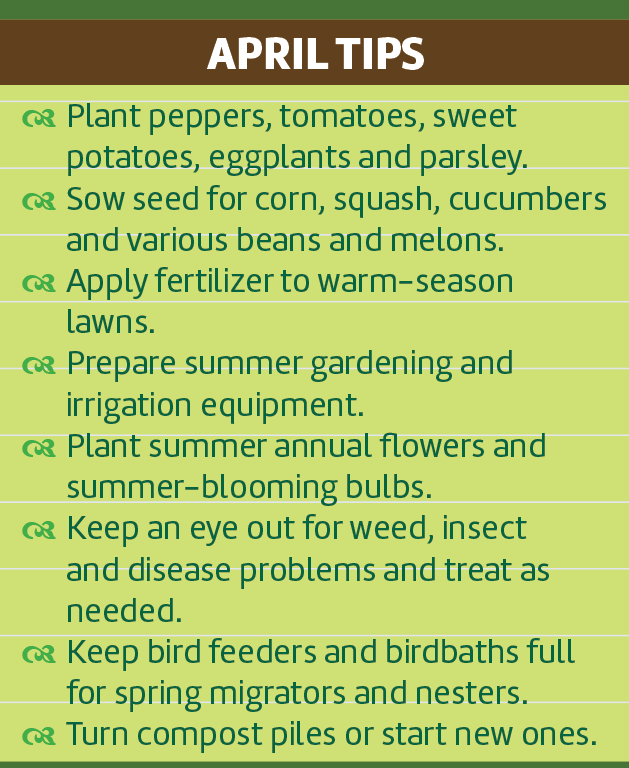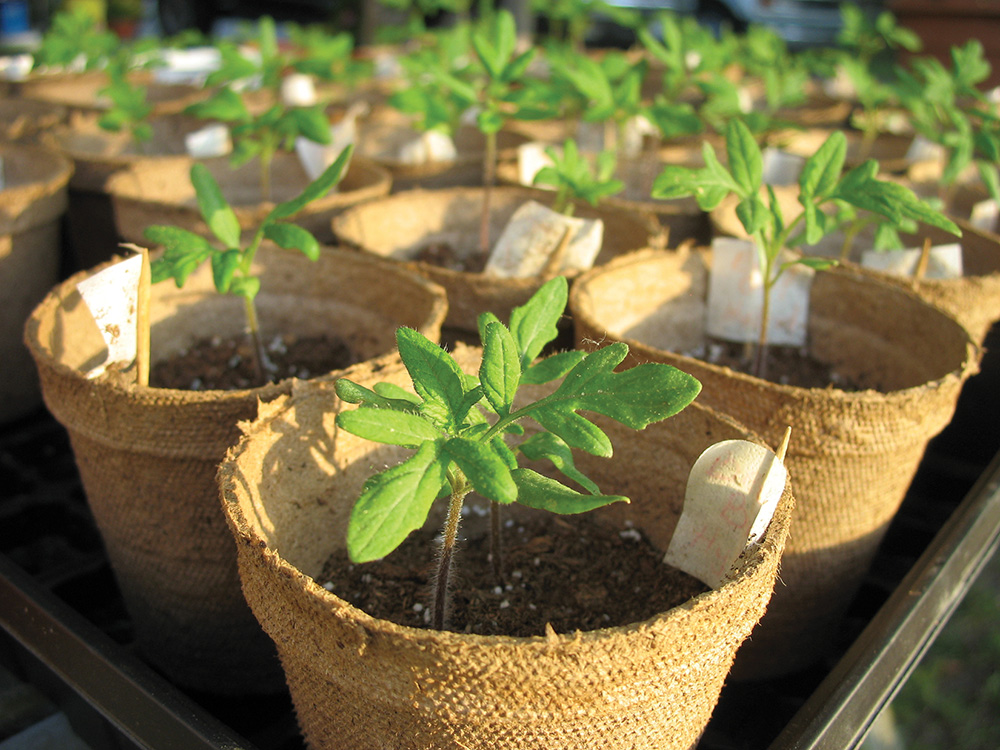If, like me, you’re looking forward to home-grown summer vegetables, herbs and flowers, it’s time to get planting.
Those of you who thought ahead and started seeds inside or in a cold frame or greenhouse already have a great source of plant material ready to go in the ground. But don’t forget to harden them off first. “Hardening off” is a process that gradually transitions young, tender plants from their sheltered indoor life to the more extreme world of the great outdoors.
Start the process by putting seedlings outside during the day in a shaded, protected area for a couple of hours, then bring them back inside. Gradually lengthen the amount of time they spend outside and the amount of sun exposure they receive on each consecutive day and, in about a week, they should be ready to go out into the world. (The length of time for hardening off varies depending on weather conditions and plant type, so check seed packages for recommendations.)
If you haven’t thought ahead, though, transplants (ready-to-plant seedlings) are abundantly available at retail outlets throughout the state, and they make growing all kinds of annual plants pretty darn easy, especially if you follow these tips.
• Pick smaller plants. Avoid extra-large plants and look for smaller, more compact plants that are about as wide as they are tall. Beware of plants that are overcrowded. If there are several plants in a single pot or seedling cell, it may seem like you’re getting more plants for your money, but they may be less healthy or stunted.
• Pick quality plants. Buy only healthy plants that exhibit good color in their leaves and stems and show no signs of yellowing, wilting or damage. Make sure their growing media is moist and the transplants are not root-bound. Try to avoid buying vegetable, fruit or herb plants that are already flowering, and look for flowering plants that have buds, not blossoms, so you’ll ensure a longer blooming period.
• Plant quickly. Try to avoid buying transplants more than two days before planting. If you have to wait longer than that to get them in the ground, store them in a warm, sunny, but protected spot and keep them well watered.
• Plant properly. Gently remove transplants from their containers so you don’t damage their tops or roots, and plant them deep enough so the soil can support them as their root systems develop. Water them well immediately after planting, and water them frequently for several days after planting. Hold off on applying fertilizer, which can burn tender leaves and stimulate excessive foliage growth. Mulch around the plants to keep moisture near their roots and suppress weeds.
When buying transplants, quality is important, and one way to ensure good quality plants is to buy “local.” Look for plants that were produced in Alabama or the Southeast — that means they didn’t have far to travel to get to your garden, so they should be less stressed. If the source of the plant is not listed on the label, ask the store’s staff or manager where they came from.
In addition to transplants, many annual seeds can now be sown directly into the garden. If you collected seed from last year’s plants or know a gardener who is willing to share ones they collected, that’s ideal. But if you need to buy seed, go for quality. A great source of fresh seed — and seed that is tried-and-true in your area — is a store that sells bulk, loose seed (farmer cooperatives and feed-and-seed stores, for example). 
If you can’t find the seed or plants you’re looking for at a local store, catalogues provide exceptional choices, especially for less common selections such as non-GMO, organic, heirloom or newly released varieties and cultivars. Just make sure you’re ordering from a reputable company by checking consumer reviews and reviewing their guarantee and return policies.
Oh, and if in your excitement you overbuy seeds or transplants, don’t toss them out. Donate them to a community or school garden and share the wealth. That way you and others can look forward to all kinds of gardening rewards in the months to come.
Katie Jackson is a freelance writer and editor based in Opelika, Alabama. Contact her at [email protected].





